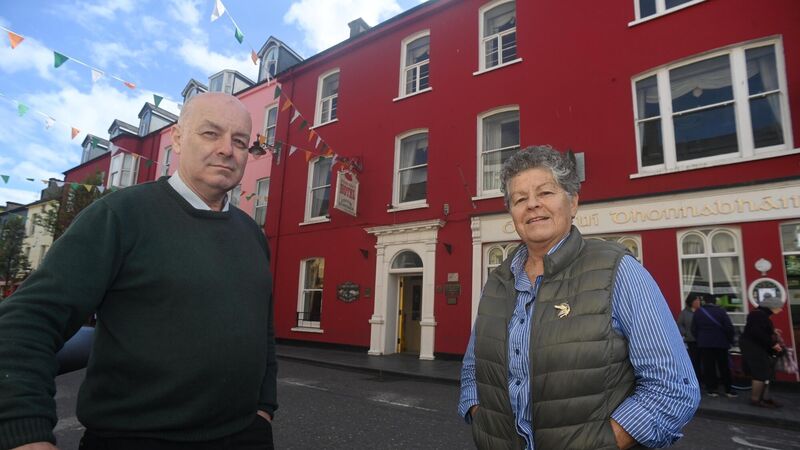'We want to pay our way': O'Donovan's Hotel and their battle with Everyday Finance

Dena and Tom O'Donovan at O'Donovan's hotel in Clonakilty. Dena says: 'None of it is right. There is a proper way of dealing with people.' Picture: Eddie O'Hare
It was Christmas week when a man walked into Options Boutique on Clonakilty’s Pearse Street and told the women working there that their time was up. The man was from a firm of receivers. He told the boutique’s proprietors that their premises was part of the O’Donovan’s Hotel group of properties which would now be placed in receivership.
Word spreads fast in a small town. Within the hour, Dena O’Donovan was getting calls from staff at the family hotel, wondering whether they would be facing into the festive season without a job. Some of the staff had been there for up to forty years. By the afternoon, the cancellations started coming in.














